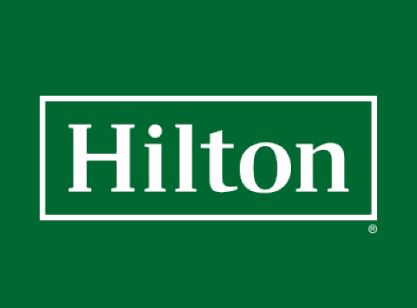GROUND FORCE
Vehicle electrification accelerates but faces static infrastructure


Car rental and ground transportation providers are responding to the ‘acceleration’ in interest among corporates in reducing their carbon emissions since the start of the Covid-19 pandemic, according to Advito principal Olivier Benoit.
While air has been the primary focus for reducing emissions, followed by hotel, corporates have become more carbon-conscious across all supplier categories. “They are now looking more into car and rail,” Benoit said. “They are moving from a pure air [strategy] to a multimodal approach.”
Corporates are asking, “How can I pick up a contract with the green guys in the industry?” added Benoit. “There’s more discussion with our clients around which suppliers are green, what can we negotiate in our contract with them, what are the offerings.”
The problem, said Benoit, is that the viable options are pretty limited. Unlike airlines, which are including carbon offsets in fare categories and providing corporates with options to donate to sustainable aviation fuel, ground transport suppliers aren’t as advanced with their specific contracting offerings, Benoit said.
“When it comes to very specific contracting policies, my opinion is that they are less advanced than what air and hotel suppliers are doing today,” he said. “When we engage [car rental companies in RFPs], for example, they will not come with specific contract options related to sustainability,” he said. This is due to the fact that supplier flexibility in the car rental space is dependent on what their manufacturer partners can provide, he said.




“Feedback from our customers has been to ban ICEs [internal combustion engines] completely from their fleets and become carbon neutral by 2025 or 2030”
Stuart Donnelly, Six Rent a Car


EVOLVING CONVERSATIONS
Even so, conversations about sustainability and ground transportation options are happening, and they are more global than before. National Car Rental SVP of business rental sales and global corporate accounts Don Moore said National is talking to more corporate clients in North America about sustainability, whereas these discussions pre-pandemic were mostly with customers in Europe.
Where car rental suppliers are taking the most significant steps are in fleet investment, especially fleet electrification.
“All the major car rental suppliers are increasing their share of hybrid and electrical vehicles in their fleet, and it’s accelerating,” said Benoit.
We are working very closely [with manufacturers] to add vehicles from a low-fuel hybrid to electric vehicles. That is in our long-term strategy
Likewise, Avis Budget Group in 2020 established a goal to reduce its greenhouse gas emissions by 30 per cent by 2030, with a focus on fleet efficiency.
“Our efforts… are rooted in three approaches: fleet optimisation, which includes enhancing connected vehicle technology; introducing fuel-efficient and low-emission vehicles; and expanding car sharing solutions through our Zipcar brand and partnership initiatives,” according to Avis Budget Group sales senior vice president Beth Kinerk.
As the fleet evolves, however, the business model also will need to follow, according to Benoit. “I don’t feel the business model for electric car rental is completely mature today,” he said.
Fleet electrification continues to be hampered by local infra-structure and battery technology and travel buyers will be limited to what their travellers will conceivably use. Because of that, he said, electric vehicle options “haven’t become a focus point” in negotiations with car rental and ground transportation partners. “It has not come to a tipping point.”
The demand may be shifting more quickly in Europe, according to Sixt global sales director Stuart Donnelly. He said the Pullach, Germany-based mobility giant was “increasingly adding hybrid and electric vehicles to our fleet,” in response to customer demand for more electric vehicles.
“Feedback from our customers has been to ban ICEs [internal combustion engines] completely from their fleets and become carbon-neutral by 2025 or 2030,” said Donnelly.
Meeting that goal will require more electric vehicle production from manufacturers, and according to recent announcements those plans are hitting the pipeline, even in North America. In March, General Motors announced it would end production of diesel and gasoline-powered cars, trucks and SUVs by 2035 and shift its entire new fleet to electric vehicles as part of a broader plan to become carbon-neutral by 2040.
Toyota plans to have 40 per cent of its new vehicle sales be electric models by 2025 and nearly 70 per cent by 2030. Europe’s biggest car manufacturer, Volkswagen, has announced a goal to sell more than two million electric vehicles by 2025, in hopes of displacing Telsa as the market leader in electric vehicles.
Indeed, the global electric car rental market is projected to reach around $15 billion by 2025, according to Market Research Future. And in some countries, regulators are getting involved.
“The governments are driving the transition as well,” said Donnelly, noting the UK’s November 2020 move to ban sales of conventional ICE vehicles by 2030 and hybrids by 2035.
ROADBLOCKS
“[Car rental suppliers] have to purchase what the customers want,” said car rental consultant Neil Abrams. “Within that framework, they are also being dictated by what the manufacturers are building. The reality is that manufacturers are going more and more toward electrification. It’s evolving at an accelerating rate. We are going to see more and more electric vehicles in fleets.”
There’s a question, however, whether corporate travel demand ultimately lines up with consumer demand. Some buyers told BTN they have to limit their requests specifically for EVs because they there’s a good chance travellers won’t use them frequently, for a variety of reasons. Right now, cost, convenience and infrastructure are all among the limiting factors.
“It’s difficult because we don’t want to add costs to the vendor to provide a vehicle that our employees aren’t going to use,” said State of California business partnership and travel manager Bill Amaral. “We have to get to the point that if we are going to ask our vendors to [introduce] more electric vehicles in their fleets, we have to make sure our employees use those vehicles.”
A big reason electric vehicle adoption remains low among business travellers is American and European infrastructure doesn’t adequately support electric vehicle use. Electric vehicles require an extensive charging station network. While suppliers provide apps to help drivers find them, it’s not enough if travellers need to cover long distances. “If you have to use an app to go find a charger, that’s telling you something – that [charging stations are] not prevalent out there,” Amaral said.
Ground transportation consultant David Kilduff said the same. “EV cars are coming but there are very few charging stations for that,” he said. “It’s not like a gas station where we pull up and fill our tank and you’re out in seven minutes. It’s not the case. It takes X amount of time depending on the model to charge one of these, so it’s going to look very different. There’s going to have to be way more charging stations than pumps. Then, you have to have the additional area in order for cars to sit there and charge.”
On top of scarce charging stations, vehicle batteries don’t enable drivers to get very far without charging. “Battery technology is going to improve, but right now, they take quite a long time to charge,” said Kilduff.
These issues combined with today’s batteries can lead to long wait times as well as anxiety for travellers. “I had an electric vehicle from 2015 to 2018 and one of the lessons I learned personally is to never pass up an opportunity to charge because they had become a lot more popular,” Amaral said.
I was always battling people to get a plug here at my department and infrastructure was a big thing, but I think for most people it was the range anxiety
At this point in time, a full electric or hybrid fleet isn’t possible for car rental suppliers, according to Moore. “You couldn’t launch a full electric or hybrid fleet today because you don’t have all the outlets you need.”
Transforming infrastructure is a monumental task. “Every rental car company, hotel, motels and other businesses are going to have get charging stations, which means land, which means infrastructure change,” said Kilduff. “It’s not simple. It is complicated, and it’s going to be an evolution.”
PATH TO MATURITY
While the road to electrification seems long, the alignment among key stakeholders points to optimism. “Manufacturers, corporates and governments are pushing pretty hard now, so I think you’ll see faster movement than you did in the past,” said Moore.
Manufacturers and their partners are investing in expanding the charging station network and making more efficient, cheaper batteries. Volkswagen, for example, said it would have 18,000 charging stations across Europe by 2025. It also said it would cut the cost of batteries by up to 50 per cent by the end of the decade, while slashing charging time to 12 minutes. The electric vehicle charging station market is expected to grow by $22.02 billion during 2021-2025, according to ResearchAndMarkets.com.
Car rental suppliers are taking the necessary steps now that are required to prepare for an electric vehicle future. “I will tell you, whenever we are renewing a location or getting a new location in a certain area, we are making sure they have power outlets for charging vehicles,” Moore said. “That’s definitely in our plan in the long term.”




















